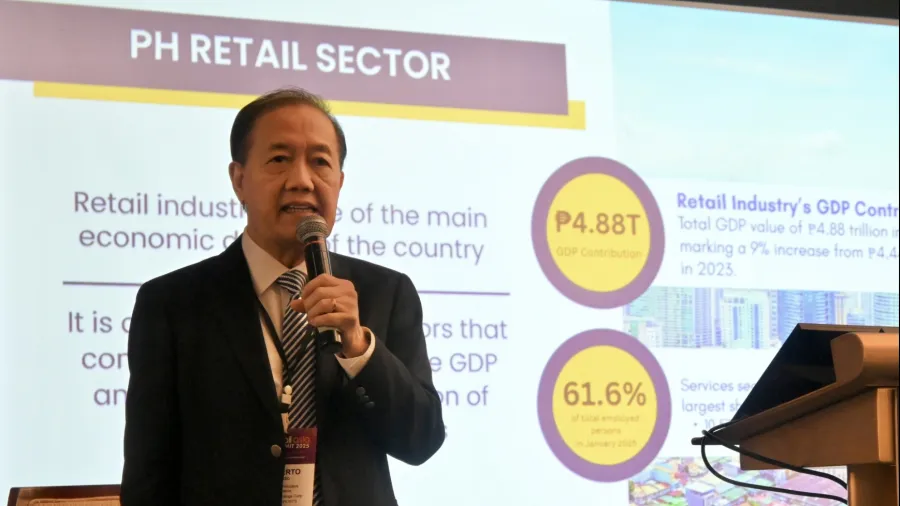
Philippine retailers seek fair tax treatment vs e-commerce
An uneven playing field is said to be hurting traditional sellers.
The Philippine Retailers Association (PRA) wants the government to plug tax loopholes that it says favour foreign e-commerce platforms and put brick-and-mortar businesses at a disadvantage.
Traditional retailers pay an average of $13.12 b (P750b) in taxes yearly, but there is no clear figure for online retailers, PRA President Roberto Claudio told the Retail Asia Summit 2025 in Manila in March.
“The government does not have a figure of how much tax they have collected,” he said. “We, in the Filipino retail industry, are strongly advocating for a level playing field.”
Brick-and-mortar stores contributed $85.36 b ($4.88t) to Philippine economic output last year — a 9% increase from a year earlier — but the amount from online retailers remained “uncaptured,” he pointed out.
Claudio said Google Philippines and research firm Bain & Co. estimated that e-commerce transactions in the country reached $31b in 2023.
A key issue is the de minimis threshold, which allows shipments worth $175 (P10,000) and below to enter the Philippines without Customs inspection or value-added tax payments.
Claudio noted that the EU removed its de minimis threshold two years ago because they saw the volume being taken from brick-and-mortar retailers. There are also pending bills In the US to remove the threshold after they discovered $500b worth of shipments that had not been taxed.
He said major online marketplaces like Shopee, Lazada, TikTok, and Shein, are dominated by foreign sellers.
“If you look at all the marketplaces, 90% of their content is foreign products,” he said. “We are telling the government: We don’t mind competition if these foreign products in these marketplaces can sell at lower prices, as long as we are playing on the same field.”
He noted that whilst local retailers pay 12% VAT and duties, many foreign sellers are unregistered and untaxed.
The government recently introduced a 1% withholding tax on certain online sellers to simplify tax compliance and enhance fairness in the country’s e-commerce landscape. Last year, the Philippines also enacted a measure that now requires foreign digital companies to collect and remit a 12% value-added tax (VAT) on services provided to Filipino consumers — even if they have no physical presence in the country.
The law is supposed to ensure fair taxation and aligns the country with global tax practices, following the lead of countries like Australia, Canada, Singapore, and the EU, which have similar digital tax measures.
But Claudio said many products from countries like the US, China, and India are VAT-free.
“You can make all the improvements in your store and in sourcing your products, but if we are at a disadvantage due to foreign merchants sending products to the Philippines by the billions, it's a major challenge,” he added.

















 Advertise
Advertise







